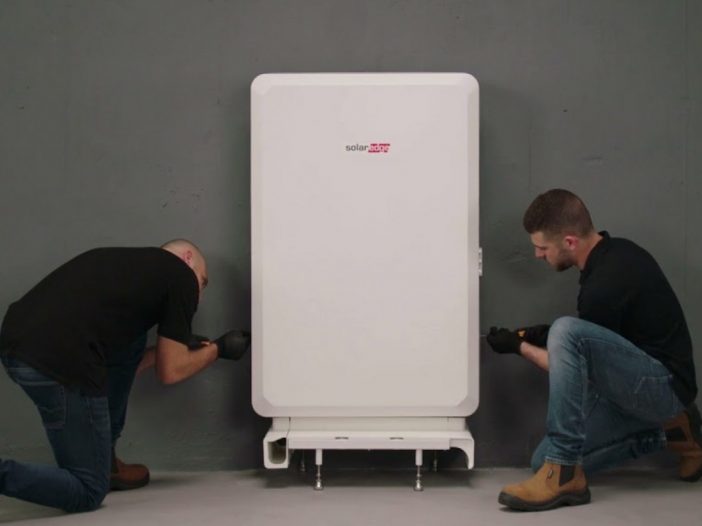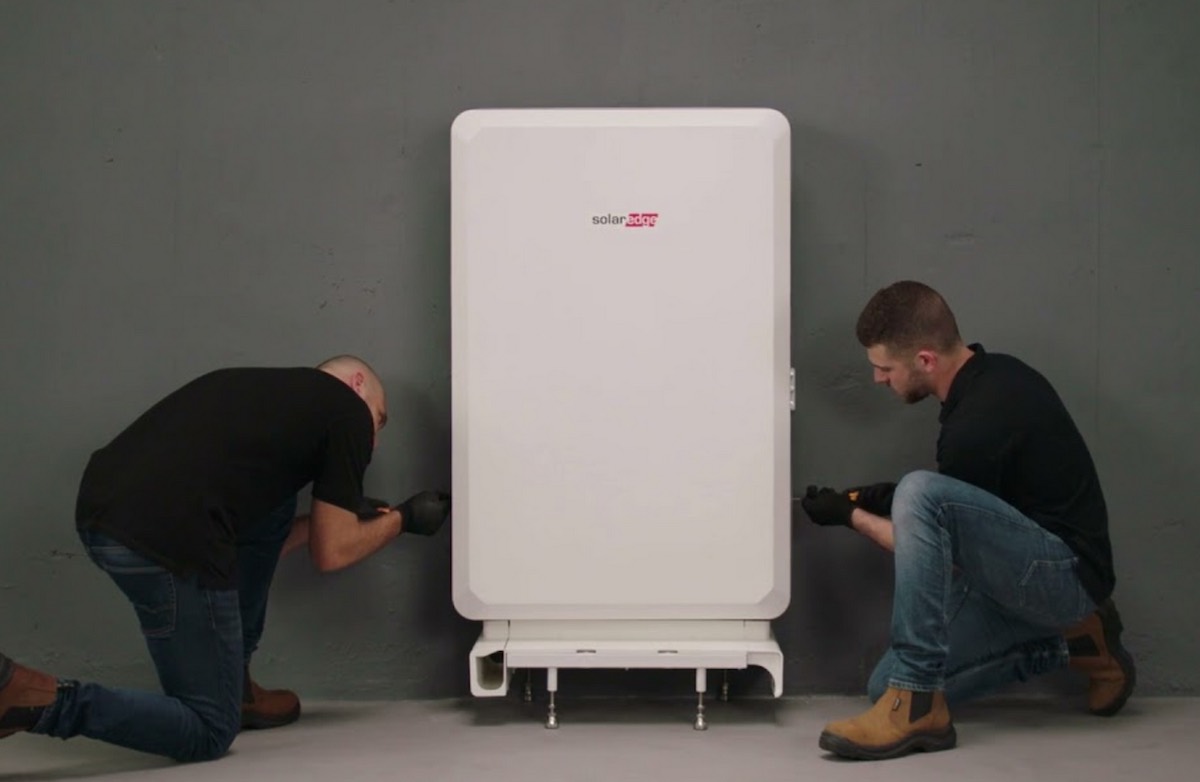
Australia is on the precipice of a home battery storage boom – and potentially faces the same sort of supply shortages currently afflicting the local electric vehicle market – as an unprecedented number of households seeks next level insulation from electricity market chaos.
Solar retailers and battery manufacturers tell One Step Off The Grid that demand for home storage systems has grown exponentially in the second quarter of the 2022 calendar year, as wholesale electricity market prices continue to spiral out of control.
They say the inquiries and orders for home battery systems are coming thick and fast from a mix of both new customers – those buying solar and storage for the first time, as a package – and from customers who already have solar installed and want to maximise their self consumption.
And while the key motivation remains financial – minimising the purchase of increasingly expensive grid electricity – retailers and suppliers say that a new sentiment is creeping in, with many households opting to “just do it” and shell out for a battery to ensure security of supply, having lost faith in the grid.
A major slump in confidence in both electricity and gas markets was the main message from the the latest Energy Consumer Sentiment Survey, published this week by Energy Consumers Australia based on a poll of consumer opinions in June – at the peak of unprecedented market chaos.
And while that shift in sentiment is – or at least, should be – of enormous concern to the industry and governments at such a crucial point in Australia’s energy transition, for solar retailers and battery makers it translates into more sales, at least for now.
“The rug has been pulled out entirely from under people’s feet in terms of energy security,” said Chris Williams, CEO of retailer Natural Solar, which operates up and down the east coast of Australia.
Williams says that there have been a few upticks in home battery demand over the past year, including when Labor won a federal election that put climate change at the top of the agenda.
But he says the uptick in June – when the Australian Energy Market Operator took the unprecedented step of suspending the wholesale spot market to rein in soaring prices and unpredictable fossil fuel power supply – was “like nothing we’ve ever seen before.”
“The loss of confidence and faith in the grid and wanting to … avoid blackouts and then concerns about inflation, all these things tie in together to create a sense of urgency to reduce costs and boost energy security,” Williams told One Step.
Andy McCarthy, who is CEO of RACV Solar based in regional Victoria, is seeing a similar pattern unfolding for his rapidly growing business, which has sold 85 home batteries in just the last three weeks, compared to 400 for the whole of 2021.
“Our experience is that people are just doing it… There’s a general consensus that if someone [has the financial means to buy solar and storage] and to not have to ride the highs and lows of the electricity market, then that is what they will do.”
McCarthy says this is particularly strong in regional areas – areas that can also be prone to relatively regular and extended outages – where RACV Solar is making 75% of its solar and storage sales.
“The main demographic is households that are reasonably financially comfortable, who have concerns about what the future electricity costs look like and they have the means to do something about it,” he tells One Step.
“Sales are typically down over the winter months, but we’re busier now than we are in summer, in terms of leads, and I would say 30-50% of our sales include a battery.
“So we are going to have shortages and we’ll have a lot of challenges in the business, because the next 12 months will be a period of rapid expansion. [The market] doesn’t seem to be showing any signs of slowing down,” he added.
For SolarEdge, whose home battery offering launched in Australia in March of this year, demand has quadrupled from one quarter to the next and local supplies are quickly selling out.
“We have definitely seen a huge increase in demand to support battery sales,” SolarEdge’s technical director (rest of world) told One Step by email.
“Currently sales are four times [greater] than the second quarter of 2022 already and our thrid quarter allocations are already exhausted!” Sturch said.
German-based battery maker, sonnen, which in December of 2021 launched a new home battery system developed with Australian conditions in mind, is also experiencing “strong demand.”
“Consumers are concerned about rising energy prices and sonnen has seen a strong increase in the up-take and demand for battery storage solutions,” said Tim Latimer, head of sales and marketing for Australia and New Zealand.
“Home owners want to maximise their existing solar power on their rooftop as they see this is a long-term solution to decrease their energy expenses.
“Of late, we’ve seen a stronger emphasis coming from the desire to have energy independence from the grid. …There’s also been strong interest in our VPP energy program sonnenConnect, due to its immediate financial and environmental benefits,” Latimer said.
But not everyone is convinced the home battery boom is here to stay. Solar retailer and installer, Leeson Group, says that while sales are good now, broader economic conditions might put a dampener on sustained growth.
“The general market sentiment has improved which has increased enquiries,” said Leeson Group managing director, Peter Leeson.
“However the fear of the looming recession and interest rate rises has people worried, so while we have seen an increase in sales, we do not believe that this will last.”
On top of those concerns, some industry and consumer groups worry that the push into battery storage will leave large segments of the community behind, including those unable to afford it and those unable to install it – the parts of society least equipped to endure prolonged periods of high power prices.
A new analysis by Solar Citizens this week found that while Queensland’s massive rooftop solar adoption rate had gone some way to mitigate sky-high wholesale electricity prices in the state, governments needed to intervene to ensure the benefits of solar and storage were extended to all consumers.
“Queenslanders have turned to solar in droves to slash their electricity bills and in the process they’re driving down the wholesale prices for everyone,” said Solar Citizens deputy director Stephanie Gray on Thursday.
“There are immediate things that the Queensland government can do to help bring down prices for vulnerable households, including rolling out more battery storage to maximise the benefits of cheap renewable energy for everyone, while helping renters and social housing tenants access rooftop solar.
“There are still many households that are locked out of the rooftop revolution and it sits with state governments to change that.”

Sophie is editor of One Step Off The Grid and editor of its sister site, Renew Economy. Sophie has been writing about clean energy for more than a decade.

